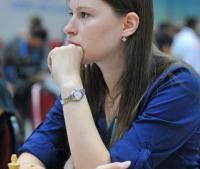
Chess and Physical Wellbeing
When I tell people who are not into chess that physical training is very important, they often don’t take it seriously, or are deeply surprised. At first sight, it seems that chess is purely a brain game which has nothing to do with endurance or physical strength. Nonetheless, this is not the case. Mental work often requires more energy than physical toils. After having played for a few hours a player is sometimes as exhausted as after completing a marathon. On top of that, if all the games in a standard 9-rounds tournament are tense, most players crumble under the pressure (both physically and psychologically) and start making inexplicable blunders.
For example, quite recently at the Women’s World Chess Championship tie-breaks were held on the same day as game two of the matches. Some participants had to play all day, with some of the games finishing as late as 2 a.m. Naturally, most players admit that it is more of a test of endurance and willpower than of chess skills. All this reminds us that all chess players should pay special attention to their physical shape and general wellbeing if they want to succeed.
It’s up to you what sport to choose. Try to avoid risky and traumatic ones though. It’s quite common for chess pros to get injured during soccer matches and suffer all tournament long afterwards. Among the most popular sports practiced by chess players are jogging, swimming and working out in the gym. Alexandra Kosteniuk is addicted to running, Vladimir Kramnik loves swimming, while Anand is very serious about his workouts. By regular physical training you both increase your endurance, and, according to some studies, boost your brain power. Also, don’t look down at the good old morning exercises and stretches. It is well-known that a good way of calming down after a tough game is to practice some sports. For example, go to the swimming pool after the game, or run a few circles at the stadium. Once again, it is a matter of personal preferences.
Leaving psychological and health issues aside for the moment, I would still like to remind you about proper nutrition and good habits. Eating healthy food is critical for a person’s success (World Championship contenders usually hire special personal cooks to make sure the nutrition will be perfect during the match). As you probably know, there are products that improve your memory and brain power: fish, nuts, broccoli, spinach, honey, milk, etc. During the game it makes sense to eat some snacks full of energy (banana, chocolate), but don’t overdo coffee and sweets. People who try to shake off the tension and finally fall asleep by smoking or drinking alcohol usually end up nowhere both in chess and in life.
In top-level sports there are no minor factors. To excel, one should constantly and responsibly strive for perfection by all means possible. The same is true for other challenging activities.
The game I would like to present to you was played at the Gibraltar Masters tournament. The time control at that event was quite classical, so some matches kept going for 7 hours or even more. At some point I understood that I’m too tired to put up with it on a regular basis and started playing more aggressively to speed things up (not a very good idea).
I didn’t get any advantage our of the opening, but my opponent made a mistake, and I could get nice attacking chances for a pawn. Instead I decided to gamble and sacrifice a piece. That day my head wasn’t operating well enough, so I misevaluated the position and miscalculated some lines. When you are feeling well, the brain is functioning much better as compared to cases when you haven’t slept well enough, or are in bad physical shape. My opponent seems to have shown too much respect and went for a repetition in a winning position.






